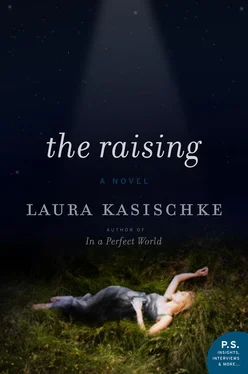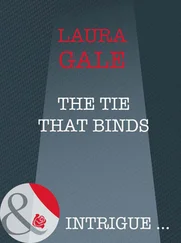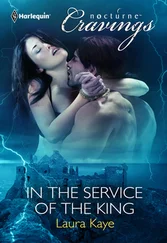“I’m sorry, Professor Polson, I know what you’re saying. But it isn’t folklore. This. It—it isn’t.”
There was a kind of sad understanding in her eyes, but she was shaking her head at the same time.
“Perry, folklore doesn’t mean something doesn’t make sense. Or doesn’t seem real. Truly, it’s the opposite. Beliefs—traditional and superstitious beliefs—arise and are passed down for coherent, substantial reasons. They’re based on psychological and physical data, real or not. Shared experiences. In the field we call this elegant rationale . There’s often an elegant rationality to even the strangest beliefs. But it doesn’t make them real. Being based on fear, inspired by hope, they can be dangerous, Perry, and I think we’re headed in that direction, and that we need to stop what we’re doing now, before it leads to something—”
“Please,” Perry said. “No. Please. I’ll talk about it any way you want me to. We can call it elegant rationale and campus folklore if you want to. But, please. Don’t stop… listening to me. Professor Polson—”
She reached across the coffee table and took his hand. She held it in her own for a few seconds, and he could feel for himself how cold his own hand was. She squeezed it before she let go, and said, “I know. I know. Okay.”
“Thank you. I—”
But she held up a hand to stop him from saying anything more. She stood up then and gestured for him to follow her into the kitchen, where he leaned against the wall as she made him a cup of tea, and they talked about class, about the article on apotropaic magic they had been assigned for the next week and which Perry had already read. She told him about her travels during her Fulbright year, the village in which she’d stayed a few nights, where every house and every inn, every restaurant and church, kept nailed to its door a piece of a broken mirror that had once hung in the ladies’ room of the local cathedral, until the cathedral had been bombed.
There had been only one woman in the cathedral at the time—an old deaf lady who hadn’t heard the air raid sirens. She’d been blown into too many pieces to gather and properly bury. The mirrors were nailed to the doors to keep her from stopping by.
They discussed the section of the essay on the motif of harmful sensations . The Sirens. The Lorelei. The Harp of Dagda. The Hungarian Suicide Song—a song, it was believed, that to hear would cause the person who heard it to commit suicide.
He told her that when he was in high school, a rumor had gone around that there was a YouTube video posted on the Internet—a body swinging from a rope tied to a tree—that, if you watched it, would cause you to hang yourself within three days. Girls had gone around Bad Axe High School frantically whispering about who had been reckless enough to watch it at the last slumber party. He’d even witnessed some tears in the hallways, and the principal eventually wrote a note home to parents letting them know about the rumor, urging them to talk to their children about it.
“Yes,” Professor Polson said, smiling, excited. “This is exactly the kind of thing we want for our study, Perry. Exactly.”
Perry was still hearing her words our study in his head, and the little thrill of that, when she said, “I think it’s time for breakfast. I don’t know about you, but I’ve got to get to the class your parents are paying me to teach, and teach it.” They both looked at their watches at the same time, and then they sat down to eat the eggs that had grown cold on the table as they’d talked, but which were still delicious.
Josie was wearing flip-flops even though the temperature outside could not have been over forty-five degrees. It was one of those deep-pewter late October days during which morning lasted until it finally bled without a whimper into twilight. Shelly had, herself, pulled her suede boots out of the back of her closet for the first time that year. Not only was it too cold for flip-flops, but flip-flops had been the one item of clothing Shelly had asked Josie, when she’d first hired her, not to wear to the office.
And she was over an hour late.
“Hey,” Josie said breathlessly, pushing open the door to Shelly’s office with her hip. “Sorry I’m late!”
Shelly tried to look away as nonchalantly as possible, returning to her computer on which she’d managed to call up a blank Word document as soon as she heard what she’d assumed was Josie coming up the stairs.
“You’re not mad, are you?” Josie asked, but she was out of the door’s threshold before Shelly could turn around and say anything, her flip-flops making a husky whisper as they slapped against the heels of her small white feet as she sauntered down the hallway toward the restroom.
It had been two weeks since they’d first slept together, and there’d been two dinners (both at Shelly’s house, cooked by Shelly) since then. Three other times, they’d left the office together, gone back to Shelly’s for drinks, and ended up in bed. These assignations had been initiated casually enough by Josie (“Hey, Shelly, are you up for a glass of wine after work?”) and, after each time, Shelly swore to herself that she wouldn’t let it happen again.
Too risky. Too risqué. Too unseemly.
But simply saying no seemed impossible. At least once or twice a day now, Shelly found herself nearly doubled over with longing for the girl:
The small hard nipples under her hands. The soft palpitating at the base of her throat. The way Josie (who required sometimes a steady, blissful hour of tongue and fingers to reach an orgasm) would throw her head back in the final seconds, and Shelly could glimpse just the bottom of her bright white front teeth between her parted lips, and a hissing sound would escape from Josie that sent what felt like a shockwave ripping through Shelly’s body, bringing her to her own climax without even needing to be touched.
It was only when they were in bed that they discussed the fact that they had ever slept together before or that they ever would again, so each “date” was like some kind of extreme sport—the rush of not knowing what would happen next.
In the meantime, Josie’s work ethic had dwindled down to nothing. She’d stopped bothering even to apologize for leaving early. She simply announced that she was leaving. Twice, she called in sick, depositing scratchy-voiced messages on the voice mail, having clearly timed her calls so that Shelly wouldn’t be in the office to actually answer the phone.
This morning, the flip-flops. Late again.
It didn’t surprise Shelly. (Why would it? Josie had been a bad work-study student from the start.) But it frightened her. She knew that the sexual relationship meant she was no longer in a position to reprimand Josie, or even gently critique her. That first morning, after that first night, Josie had shimmied her jeans on, zipped up her hoodie, and said, before sliding out Shelly’s front door, “Shelly, I’m going to have to make up tomorrow for missing my Chem Lab yesterday afternoon, ’kay? So, I won’t be in. But I’ll see you soon?”
Shelly had found herself unable to remind Josie that she had responsibilities related to the St. Crispin Quintet concert the next day. Someone needed to walk them from their hotel to Beech Auditorium (because it was written into their contract that the St. Crispin Quintet did nothing without an escort), and it was the work-study’s job to attend to these details. It was, in fact, the whole reason Shelly had been given a work-study student in the first place, because the experience of rubbing elbows with these professionals was supposed to be so beneficial to the student’s education.
Читать дальше












